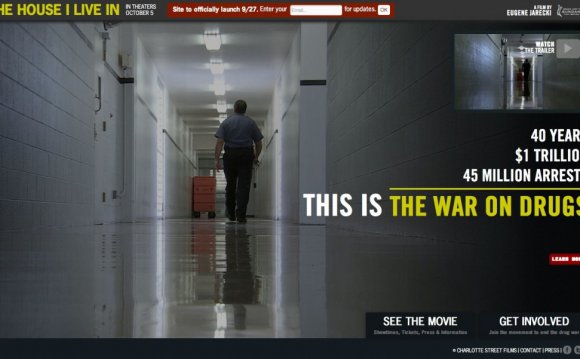
American Drug War follows filmmaker Kevin Booth as he consults with people on all fronts of the war on drugs to create a multidimensional portrait of those impacted most directly, from users and dealers to law enforcement officials and politicians.
Examining the role of poverty in drug use and its perpetuation of the addiction cycle, Booth and his crew go undercover to infiltrate one of the most notorious drug hotbeds outside of Los Angeles to capture footage of street junkies in action. In one vignette he captures a conversation between a police officer and an addict who is disoriented enough to be using directly in front of the police station. The man explains his preference for crack over meth as casually as if he were comparing Coke to Pepsi.
With street drugs now stronger, more readily available, and cheaper than in 1973 when Richard Nixon created the Drug Enforcement Agency, Booth asks why so much time and money is funneled into the criminalization of recreational drugs instead of recovery and addiction support programs. He highlights the futility of criminalizing drugs like methamphetamine, which can be made at home with over the counter ingredients, and questions the dubious entity that is the Partnership for a Drug-Free America - an America which has never existed and, according to interviewee Judge James P. Gray of California's Orange County Superior Court, never will.
While Booth speaks to law enforcement officials like Gray who admit to the failure of the drug war, he also grants time to its proponents, notably Arizona's Maricopa County Sheriff Joe Arpaio. Boasting a reputation as the toughest sheriff in America, Arpaio created S.M.A.R.T. Tents, the largest tent city in the U.S., if not the world, where he houses convicted inmates - about half of whom are there on drug charges.
These are just a few of the stories shared in American Drug War, a dynamic review of the history of the war on drugs in the United States and the societal burden it has created as a result. Genuinely questioning the impact and shortcomings of the United States' war on drugs, it manages to be an unbiased, revelatory film.
RELATED VIDEO











